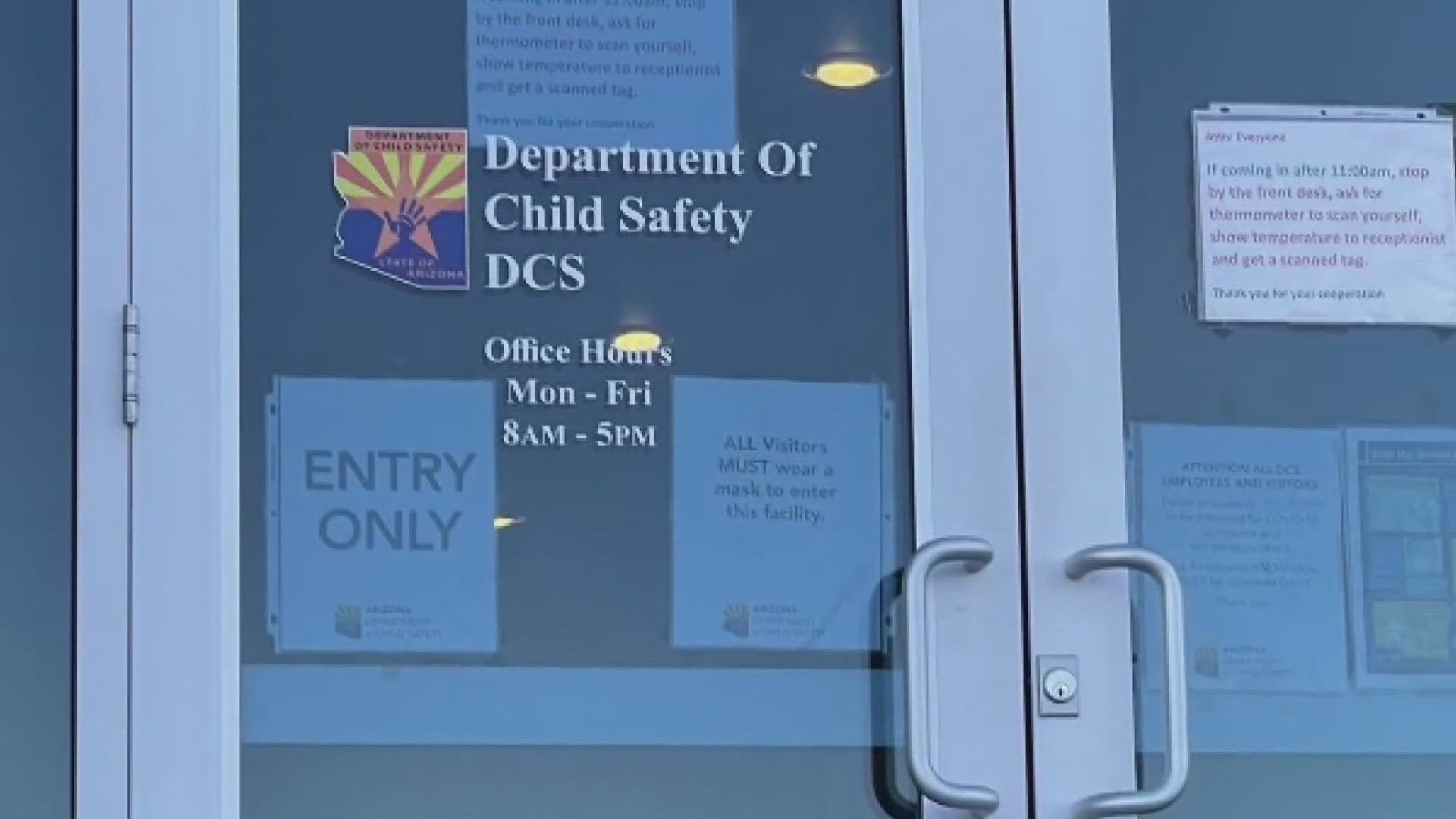PHOENIX — Arizona has the highest percentage of young foster kids living in group home settings out of all 50 states, according to the latest available data from the U.S. Department of Health and Human Services. Officials with the Department of Child Safety said they're trying to change that and advocates say it's a statistic that needs to change.
'I was just a number'
Jacob Holley remembers the day he became part of the foster care system. He was 11 years old and was picked up from his elementary school.
"I even remember that night, not one staff member was asking me if I was OK, if I could have anything for dinner," Holley said. "And because I was causing a scene with the afternoon/night staff, I was even written up for causing a disturbance, for crying that first night."
Holley, now a board member for Fostering Advocates Arizona, said he would have a total of 27 placements in five and a half years. 24 of them were placements in group homes.
Looking back on that time, Holley recounts little communication and feeling like he was stranded.
"Even to this day, it feels like they didn't care about me back then, I was just a case file. I was just a number," Holley said.
The latest data from the Department of Child Safety shows nearly 11 percent of the roughly 8,700 kids in DCS' care are in a group home setting right now in Arizona.
Still, those numbers, DCS said, are a priority to be reduced.
Lack of foster families
A spokesperson told 12News on the phone that 52 group home contractors were awarded contracts this year, while 16 were not. That means 250 kids need to be transitioned out of group homes to other settings like kinship or foster family placements in just five months.
While DCS declined 12News' multiple interview requests over the past two weeks about this topic, DCS CEO David Lujan told legislators in April that reducing group homes was one of DCS' "highest priorities". However, Lujan said there is a lack of foster families.
"We have seen a steady decrease in the number of community foster families in Arizona since the pandemic. We need help to increase the number of community foster families in Arizona as well as the number of kinship families," Lujuan told lawmakers. "That's going to help us to be able to reduce the number of kids in group homes, which will reduce our costs, which can go towards prevention."
Currently, investigations are underway into Sunshine Residential Homes, a large group home provider for DCS, and its alleged ties to Governor Katie Hobbs' office, in an alleged "pay to play" scheme.
Both the Attorney General's Office and the Arizona Auditor General, in conjunction with the Maricopa County Attorney's Office, are investigating the relationship and seemingly preferential treatment and more lucrative contracts awarded by DCS to Sunshine. A DCS spokesperson previously denied those allegations in a statement to 12News.
Bill aimed to reduce group home care dies in legislature
Earlier this month, a bill that would have required the Director of DCS to approve placements for kids 12 and under into group homes died in the State House of Representatives.
Fostering Advocates Arizona and Children's Action Alliance worked together on the legislation as a way to try and reduce the number of kids in group home care.
It's something the Director of Child Welfare and Juvenile Justice Policy at Children's Action Alliance, Molly Dunn, said has been proven to work in other states.
Dunn pointed to a 2021 report by Think of Us which highlighted the negative outcomes of institutional placements used in the foster care system. The report found intuitional placements left foster youth without consistent, caring relationships with adults, and were experienced as 'prison-like and punitive'.
Dunn points out that kids need a consistent and nurturing adult to form healthy attachments to aid in healthy development.
"That consistent adult that typically comes in a family setting, it doesn't come in an institution where you have staff who are rotating in and out. Those placements can be appropriate in very limited circumstances," Dunn said.
Requiring director approval for group home placements is part of the key levers of change the Annie E. Casey Foundation and Casey Family Programs recommend to help end the need for group home placements, among other strategies.
"I think it's really a cultural shift that has to happen, and that takes time, and it takes a lot of concerted effort, and I think it takes, you know, moving outside of the way that you've always approached a problem. And again, that's why we'd like to see them embracing the initiative, ending the need for group care, learning from other jurisdictions, bringing in experts who've, you know, proven to help, help reduce the use of group care for children in foster care," Dunn said.
Dunn said Children's Action Alliance and Fostering Advocates Arizona would be regrouping on the next steps to advance the issue.
Still, Holley said he wants to see change and hopes others will better understand kids in the system need help.
"It's not the child's fault. They didn't have any control being put into the system that was designed with flaws and against them to achieve success afterwards," Holley said.
Up to Speed
Catch up on the latest news and stories on the 12News YouTube channel. Subscribe today.

